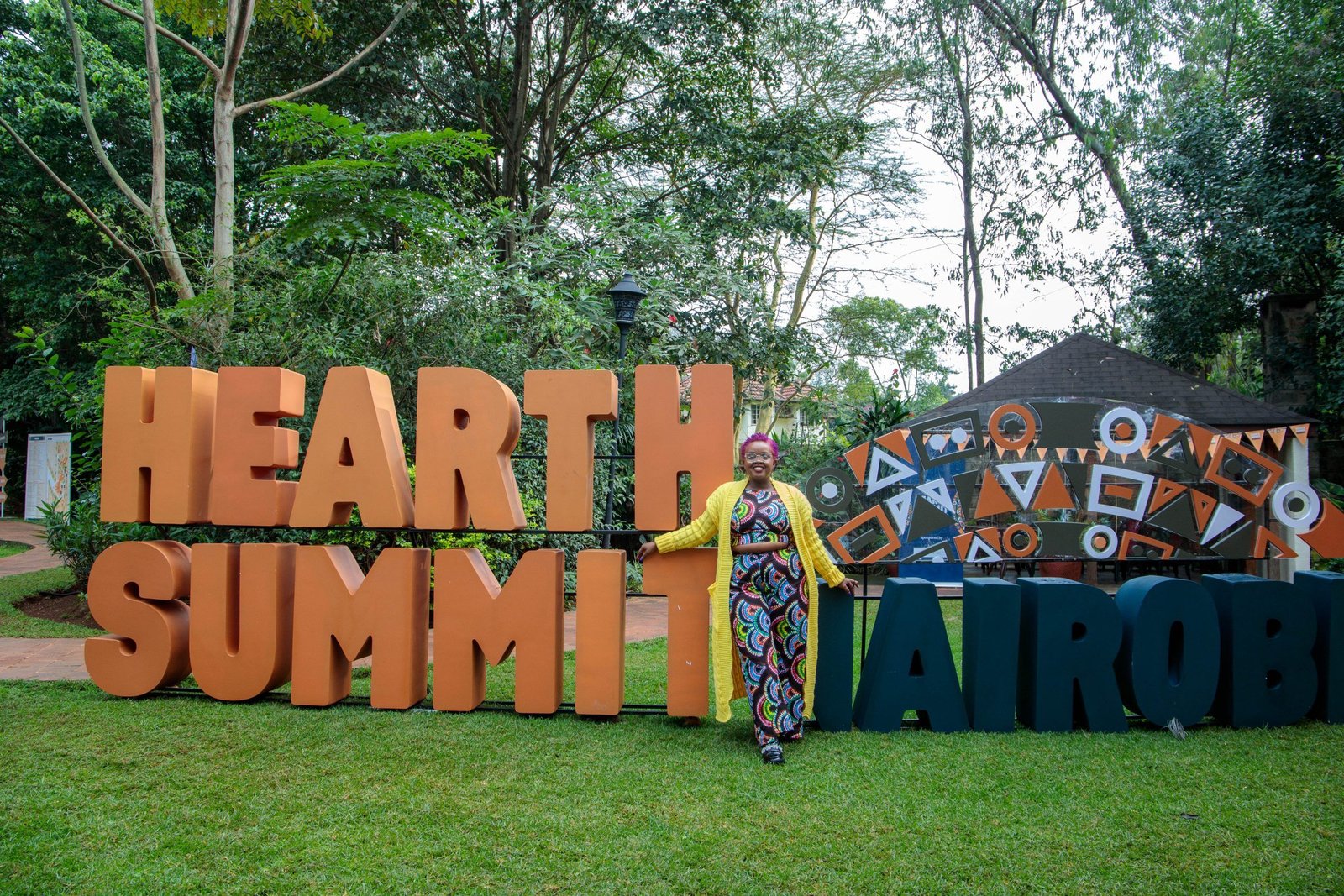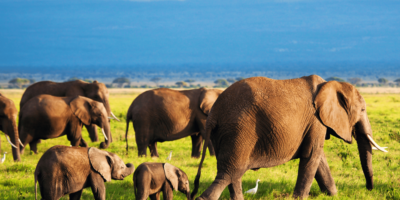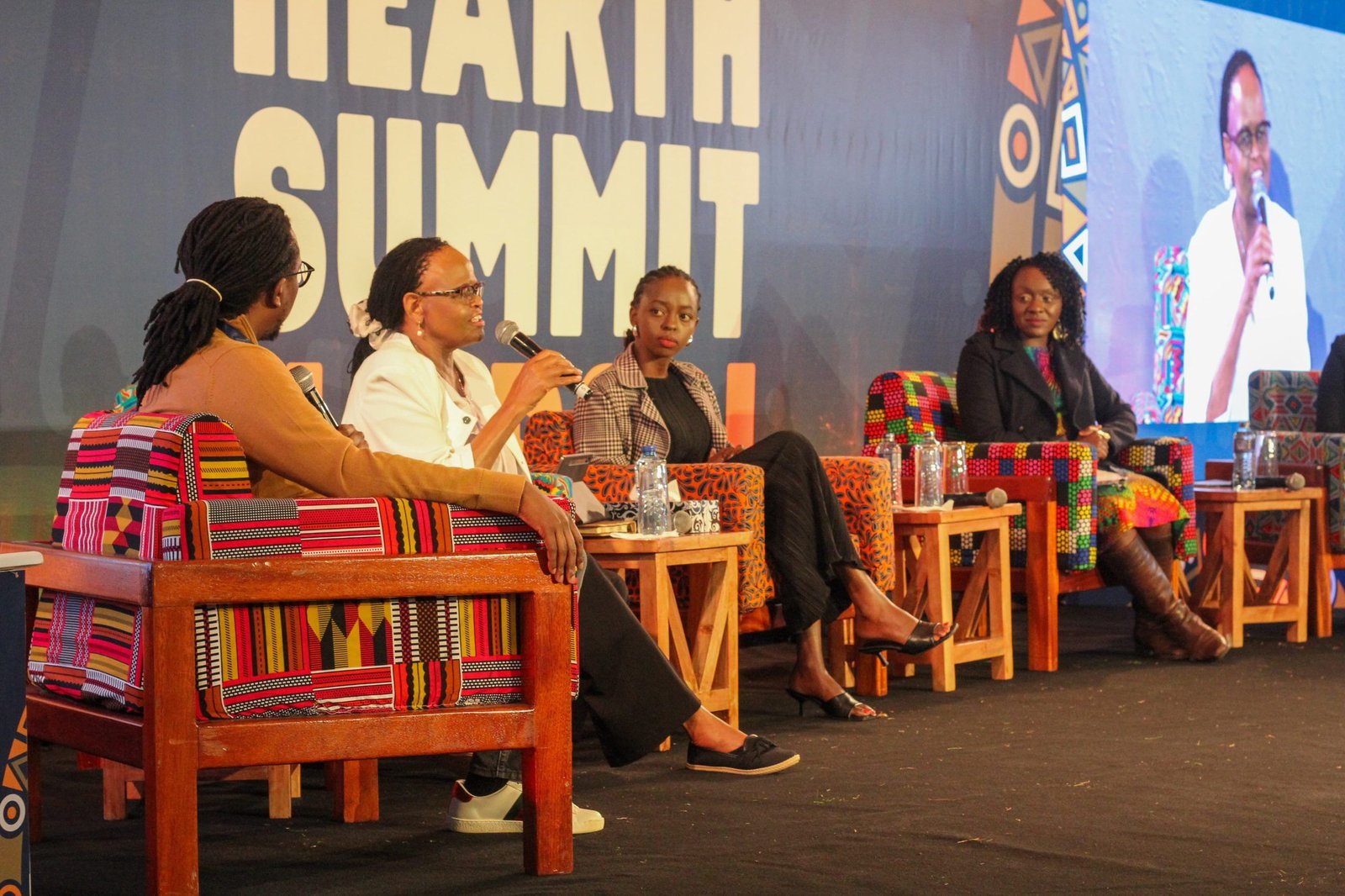Ecological Wellbeing in Kenya: Where Are We Now and Where Should We Go?Ecological Wellbeing in Kenya: Where Are We Now and Where Should We Go?
Stories from the Hearth
Interview With:
Session Recap From:
Hearth Summit Nairobi 2024
🌍 Nairobi, Kenya

Hearth Summit Nairobi invited changemakers to reflect on their relationship with the natural world by being held in the landscape of the Karen neighborhood of Nairobi, known for its forests, flowers, and vegetation.
Quick Reads
- Ecological Belonging and planetary wellbeing were key themes at Hearth Summit Nairobi, the first regional wellbeing summit for social change held in East Africa by Axum.
- A diverse group of experts – Fridah Kiboori, Nyaguthii Chege, Constant Cap, and Kevin Juma – shared perspectives on contributors and inhibitors to ecological wellbeing in Kenya.
- They recognized drastic environmental changes over the years in Kenya, including the loss of green spaces in cities like Nairobi, and the need for conservation and green urbanization.
- Community-driven initiatives, justice, and equity were highlighted as necessary to successfully reclaim and transform urban spaces and achieve ecological wellbeing throughout the country.
- Possible solutions explored include significant investments in accessibility to green spaces, successful biodiversity conservation, and community-led projects.
At Hearth Summit Nairobi, the first regional wellbeing summit for social change in East Africa, 300 changemakers gathered to explore a new culture of social change in Kenya and beyond. With Ecological Belonging as a core pillar of the Summit’s program, changemakers reflected on their relationships with the natural world, climate change in Kenya, and the rich cultural heritage present in the region. The Summit was organized by consulting firm Axum as part of their work to foster climate-positive, digitally innovative, inclusive growth, economic development, and social advancement across Africa, the Middle East, and the world.
A diverse group of experts were brought together to explore the intersection of urban development, nature conservation, and the future of green spaces. Fridah Kiboori, Associate Partner, Axum, moderated the conversation featuring:
- Nyaguthii Chege, Director, Natural Justice East Africa Hub
- Constant Cap, urban planner and researcher, and
- Kevin Juma, Africa Climate Director, The Nature Conservancy
Each speaker shared personal experiences and professional insights, creating a rich dialogue that highlighted both challenges and opportunities in the realm of ecological wellbeing.
Catch a glimpse of the Summit here in this short video:
Scene Setting: Changes in the Kenyan Landscape
Each panellist shared personal stories of their relationship with nature, particularly reflecting on their memories from childhood and how they shape their present perspectives. From their stories, the discussion was rooted in real-world examples and human-centered views on the complexities of conservation, urbanization, and community action.
Kevin Juma shared his journey from a nature-loving boy in Western Kenya to a leading forestry specialist. He recounted his childhood experiences of gathering wild fruits and playing outdoors, which later inspired him to study forestry. Kevin highlighted the drastic changes he observed over the years, from shrinking rivers to disappearing fruit trees, underscoring the urgent need for conservation. His career spanning over two decades has been dedicated to understanding and preserving the intricate connections between natural environments and human wellbeing.
Constant Cap brought a contrasting viewpoint as someone who grew up in an urban setting. He vividly described how Nairobi has evolved from the 80s and 90s, where open spaces and public parks were more accessible. Over time, these green spaces have been encroached upon, impacting the city’s ecological balance. Constant mentioned the intentional grabbing of public land and the subsequent deterioration of communal spaces. Despite these challenges, he highlighted positive community actions and initiatives aimed at reclaiming and preserving urban green spaces.
Nyaguthii Chege tied the conversation to her childhood memories and larger societal impacts. She discussed the systematic theft of public land and how it has reshaped Nairobi’s urban landscape. Nyaguthii emphasized the importance of justice and equity in ensuring ecological wellbeing, pointing out how past struggles to protect spaces like Uhuru Park are still relevant today. She touched upon the emotional and psychological benefits of green spaces and the necessity of fighting to protect and reclaim these areas for future generations.
Conservation Matters
Watch episodes of NTV’s Wild Talks with Smirthi Vidyarthi to discover five captivating stories of The Nature Conservancy’s conversation work in Kenya.
Looking Forward: Actionable Solutions for Ecological Wellbeing
As Fridah guided the panel towards discussing actionable solutions and developments, the panellists gave examples of projects and initiatives that are driving positive impacts for ecological wellbeing. Kevin talked about the necessity of balancing conservation with economic activities. He advocated for better enforcement of environmental laws and the inclusion of indigenous communities in conservation efforts. Constant highlighted grassroots initiatives like the Dandora Transformation League and Nairobi Placemaking Movement, which are successfully reclaiming urban spaces. Nyaguthii pointed out community-driven efforts like the Ghetto Farmers of Mathare, which transform trash-filled areas into green spaces and cultivate local produce. These initiatives showcase the power of community action in restoring and maintaining ecological health.
Watch to learn more about the Ghetto Farmers of Mathare, one of the solutions highlighted by the panel.
Envisioning the Future: Headlines of Hope
The panelists concluded by sharing hopeful headlines they would like to see in the future. Constant envisioned a significant investment in walking and cycling infrastructure in African cities, aligning with a broader push for sustainable mobility and making green spaces more accessible. Kevin’s ideal headline focused on a dramatic increase in the population of black rhinos, indicating successful conservation efforts and biodiversity protection. Nyaguthii’s emphasized the need for social justice as a foundation for ecological wellbeing, envisaging a society where fairness and equity drive environmental actions.
Fridah wrapped up the session by underscoring the interconnectedness of individual actions, community efforts, and systemic changes in achieving ecological wellbeing. The conversation highlighted the dual need for protecting natural spaces and ensuring equitable access to these areas for all.
Go further and learn about Axum’s work to pioneer sustainable forestry management and drive biodiversity conversation in East Africa.












































